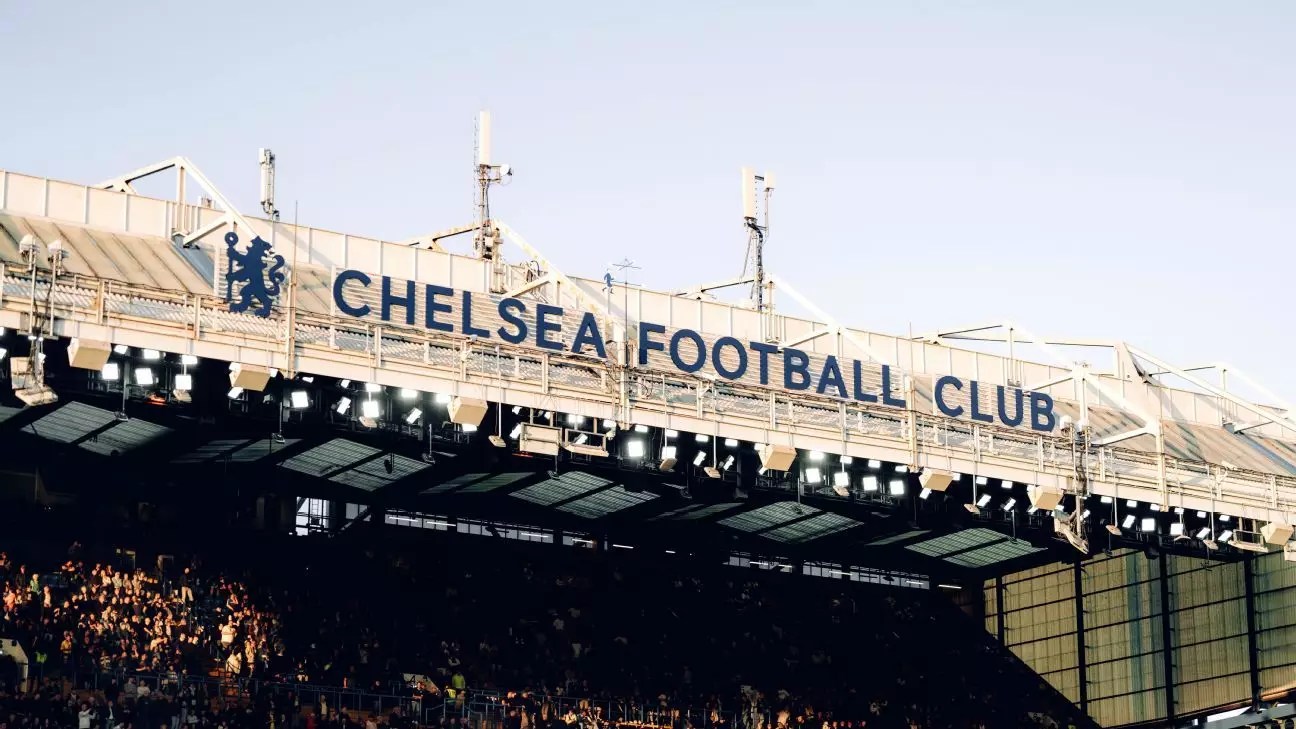Chelsea Football Club finds itself at a pivotal crossroads, engulfed in a serious legal scrutiny that threatens to reshape its trajectory. The Football Association (FA) has formally charged the club with 74 violations of its regulatory framework, spanning over a decade of what appears to be covert financial dealings. This isn’t merely a minor blip but signals potential systemic issues, perhaps reflective of a culture that prioritized short-term success over regulatory compliance. The timing, focusing mainly on the period from 2010 to 2016—the peak years of Chelsea’s domestic and European dominance—adds an intriguing layer of complexity, raising questions about the integrity of the club’s operations during one of its most successful eras.
These allegations revolve around clandestine payments directed towards intermediaries—football agents or third-party brokers—through offshore companies meant to circumvent established rules. If proven true, this could suggest a deeply embedded pattern of misconduct, challenging the club’s reputation built on sporting excellence and fan loyalty. Importantly, the case is not only about individual transactions but exposes potential institutional failings, raising broader questions about governance, transparency, and accountability within one of Europe’s most storied football institutions.
The Broader Context: Comparing Chelsea and Manchester City
The situation confronting Chelsea inevitably evokes parallels with Manchester City’s ongoing legal saga with the Premier League. City’s case, primarily exposed through journalistic investigations, revolves around allegations of financial fair play breaches and undisclosed financial benefits, all tied to their ownership by the Abu Dhabi United Group. Both clubs are now entangled in complex investigations that threaten severe sanctions, including points deductions, transfer bans, or hefty fines.
However, the manner in which these cases unfolded diverges significantly. Chelsea’s charges stem from self-reported historical infractions, with the current ownership actively cooperating with authorities—an approach that signals a stark contrast to City’s more contentious and protracted battle, during which accusations emerged via external reporting. Chelsea’s transparency could be a strategic advantage, demonstrating a willingness to address past mistakes openly, or more cynically, a calculated move to mitigate sanctions through cooperation.
Yet, some argue that the historical nature of Chelsea’s allegations complicates the narrative, questioning whether justice is truly served decades after the transactions. The fact that most breaches occurred under the tenure of Roman Abramovich raises the issue: Are these charges an equitable pursuit or an attempt to re-examine past industry practices through a modern regulatory lens? With both cases, the underlying theme is the persistent tension between financial ambition and adherence to the rules—a dilemma that football governance continues to grapple with.
The Potential Consequences and the Implications for Chelsea
The fallout from these allegations could be profound, reshaping Chelsea’s future not just on paper but on the pitch. If found guilty, the club could face tangible penalties, ranging from points deductions or a transfer embargo to fines that could dent their financial muscle. Such sanctions might undermine their competitiveness, especially on the European stage, where precise squad management and strategic investments are critical.
Nevertheless, Chelsea’s current leadership appears confident that their extensive cooperation and transparency will work in their favor. The club has expressed readiness to accept a fine similar to their UEFA sanction—around €10 million—should they be found at fault. Their proactive disclosure and willingness to engage with regulators could serve as mitigating factors that influence the severity of the sanctions, emphasizing a narrative that they are seeking redemption.
Fundamentally, this saga raises questions about the sustainability of modern football’s financial practices. Is what Chelsea— and possibly other clubs—engaged in an inevitable aspect of the sport’s evolution, or does it represent a dangerous trend that risks undermining the integrity of competitions? If harsher penalties are imposed, it could set a precedent, prompting clubs to revisit and perhaps overhaul their financial strategies, fostering a more transparent environment.
The Cultural and Ethical Dimensions
Beyond the legalities, this case confronts football’s core values of fairness, integrity, and in-game honor. When clubs engage in opaque financial dealings, it diminishes trust among fans, players, and stakeholders. Chelsea’s history of extraordinary success—most notably during Abramovich’s ownership—was built on talent, dedication, and strategic management. But if those achievements are recognized as products of questionable financial conduct, the sport’s moral credibility suffers.
Furthermore, the internal investigation conducted by Chelsea indicates an acknowledgment of past shortcomings. Their claim that most breaches occurred over a decade ago and under different ownership dynamics suggests a recognition of errors, but also raises the question: can the club truly distance itself from these past actions? The ongoing investigation could serve as a moral reckoning point—either as a moment of redemption if the club manages to demonstrate genuine reform or as a stain on its legacy if allegations are substantiated.
Chelsea’s current crisis underscores a broader reflection on how modern football negotiates the thin line between competitive ambition and ethical integrity. As the legal wheels turn and the FA prepares to deliver its verdict, all eyes remain focused on whether this iconic club can navigate the storm without sacrificing its identity or future prospects. The outcome could serve as a bellwether for the sport at large, signaling whether transparency and accountability will reign supreme or if the shadows of past misconduct will continue to haunt the beautiful game.


Leave a Reply